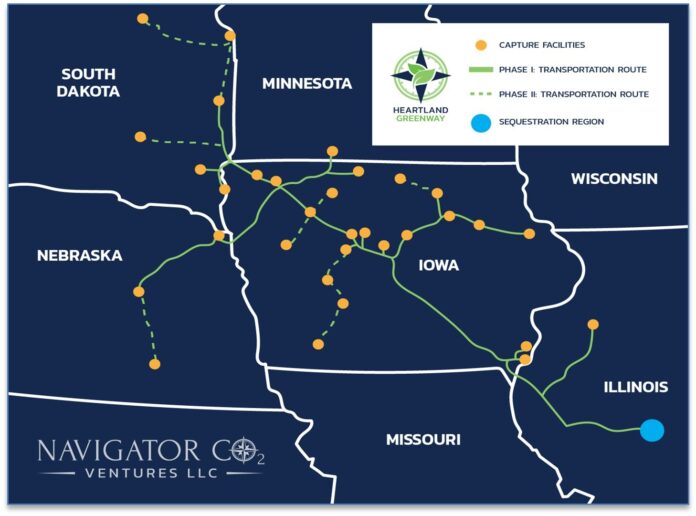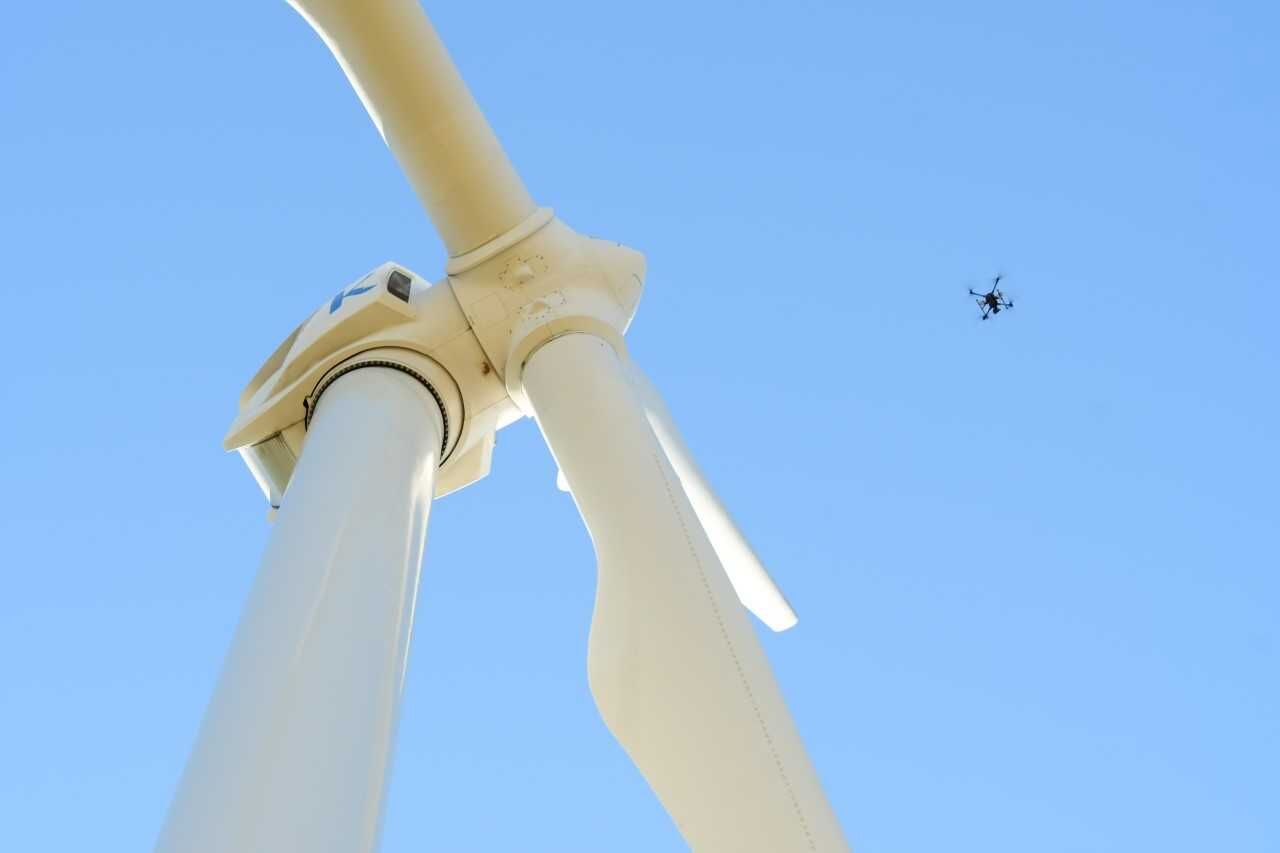
Navigator CO2 Ventures announced June 7 they will be providing carbon capture, utilization and storage (CCUS) services to POET on the planned Heartland Greenway system.
POET has 18 bioprocessing facilities across Iowa, Nebraska and South Dakota, and is regarded as the world’s largest producer of biofuel and a leader in sustainable products. The agreement would move approximately 5 million metric tons of CO2 annually, taking the total amount to 10 million tons across the Heartland Greenway system.
If approved by the Iowa Utilities Board (IUB), the pipeline will be operational in 2025, according to a press release.
“We recognize that now is the time to take bold action to preserve our planet for future generations,” said Jeff Broin, POET founder and CEO, in a statement.
Navigator also entered into a 20-year agreement with Big River Resources in May to provide turnkey CCUS services on the Heartland Greenway system. More than one million metric tons of CO2 will be moved under the plan.
The $3 billion Navigator project, a 1,300-mile path traversing several counties in Iowa, originally including Benton, Linn and Iowa counties, would collect carbon dioxide emissions from fertilizer and ethanol plants to be transported, in liquefied form, to underground storage facilities in Illinois.
A newly released map of the pipeline’s path from Navigator shows the pipeline will no longer run through the Corridor after all.
“The map has been updated to reflect new partnerships with several facilities throughout the project’s footprint,” Navigator spokesperson Andy Bates told the CBJ. “The Heartland Greenway CCS platform will no longer be crossing through Cedar, Jones, Linn, Benton, Iowa and Poweshiek counties.”
Elizabeth Burns-Thompson, vice president of government and public affairs, said in January the pipeline would no longer run through Cedar County, according to the Clinton Herald.
That announcement was sparked by Archer Daniels Midland’s (ADM) decision to partner with Wolf Carbon Solutions to build a 350-mile pipeline for the capture, compression and transportation of carbon dioxide produced at ADM’s ethanol facilities in Cedar Rapids and Clinton. That pipeline would transport 12 million tons of CO2.
Mr. Bates said the Heartland Greenway platform will not be servicing the ADM facilities and there are no planned interconnections at this time.
Maps for the ADM pipeline have yet to be released.
The Linn County Board of Supervisors submitted its formal opposition to Navigator using eminent domain to obtain right-of-way easements in January following concern and anger raised by environmental groups and landowners at Iowa Utility Board informational meetings held across the state.
Critics say the pipeline is unsafe and goes against the interests of residents who live on and use the land daily, while Navigator — and other pipeline companies — insist the CO2 pipelines are safe and crucial in reducing greenhouse gas emissions.
“The Midwest’s carbon capture pipeline battle is pitting the biggest industry players against the very farmers who supply them” said Emma Schmit, Food & Water Watch senior Iowa organizer. “Carbon capture is a false solution to our climate crisis, sucking up billions in public dollars to throw at private companies, while leaving farmers, landowners and communities like mine to foot the bill when things go wrong.”
A petition filed with the IUB by the College Community School District expressed concern that previous Navigator pipeline paths would run through an elementary school under construction and will be occupied by fall 2023, and through undeveloped land that could be used for future expansion.
It is just one of three carbon dioxide pipelines that out-of-state infrastructure companies are seeking approval from the Iowa Utilities Board.
Apart from the Navigator and ADM pipelines, the third proposal is from Summit Carbon Solutions. They filed a permit request for a $4.5 billion, 2,000-mile pipeline, according to the Des Moines Register. The Summit pipeline will not run through the Corridor.




